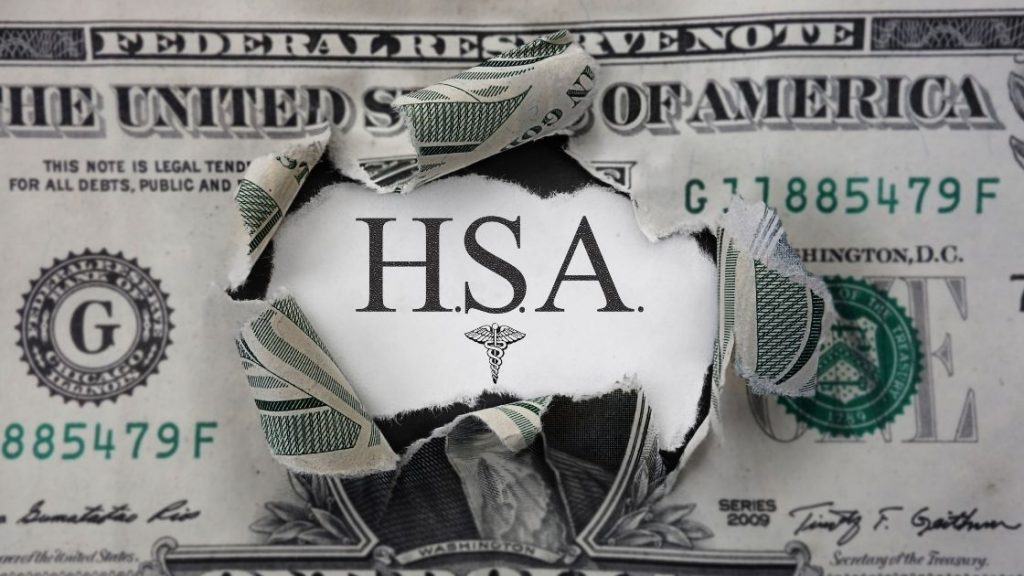You’ve probably heard of Health Savings Accounts or HSAs by now. They are a benefit offered by some employers to help their workers pay for qualified medical expenses in a tax-advantaged way.
HSAs are perfectly suited for their main purpose, which is saving money when paying for medical costs.
But that’s not all they can do. There’s one feature of the HSA that almost no one knows about – its potential application to rental property investing.
That’s what you came for, so let’s get into it!
This post may contain affiliate links. If you click on a link and complete a transaction, I may make a small commission at no extra cost to you.
Can You Use Your HSA to Invest In Rental Properties?
You can use your HSA to invest in rental properties so long as you buy them through a self-directed HSA. A self-directed HSA can be established by rolling over funds in an existing HSA account to a new account that allows self-directed investments in real estate.
Source: IRS
The first thing you need to do is find a custodian specializing in self-directed HSAs to open up this type of account. A simple google search for “self-directed HSA custodian for real estate” should get you started.
We’ll go into the account set up process and the various types of accounts available later in the article.
Once the rollover is done, you can use money in your self-directed HSA account to buy rental properties.
Note of Caution: When investing in rental properties this way, you need to follow the IRS’s prohibited transaction rules and unrelated debt financing or “UDFI” rules (if you finance the rental). More on that later.
Can You Use Your HSA to Flip Properties?
You can use your HSA to flip properties so long as you do so through a self-directed HSA.
Source: IRS
Like with rental property investing, flipping activities must comply with the IRS’s prohibited transaction rules and UDFI tax rules.
How Do You Set Up a Self-Directed HSA?

The first step in setting up a self-directed HSA is to find a qualified custodian that administers self-directed HSAs and permits investments in rental property through such HSAs. After finding a suitable custodian you will need to open up a self-directed HSA account with them and fund the account through a roll over of existing IRA funds.
As I mentioned earlier, just start with the google search “self-directed HSA custodian for real estate” to find a list of providers. You should go deeper than that, but this list will be a good place to start.
As you look at providers, you will notice that there are two types of accounts that you can set up for your self-directed HSA. The first is a Custodian Controlled Account and the second is a Checkbook Control Account.
There are important differences between these two, so we’ll explore the features of both.
What is an HSA Custodian Controlled Account?
An HSA Custodian Controlled Account is a self-directed HSA Account where the custodian administers the funds in an HSA and takes direction from the HSA owner on investments. The HSA owner does not have direct control of funds in the HSA because the custodian controls those funds, including withdrawals from the account.
You may need to get the custodian’s approval each time you want to make an investment and wait until they release the funds, all of which can take time. They also typically charge you for each transaction.
It’s tedious and almost unworkable for rental property investors because you have a lot of transactions happening in relation to your rental properties and you need to go to your custodian each time to get needed funds. There is a better option – the Checkbook Control Account.
What is an HSA Checkbook Control Account?
An HSA Checkbook Control Account is a self-directed HSA Account where the owner of the HSA has full control over the HSA funds. The owner will not need approval from the custodian to make investments through the HSA and will not need to wait for the custodian to disburse funds in connection with such investments.
It’s called checkbook control because you control the checkbook.
Setting up an HSA checkbook control account requires a bit more work. First, you have to form a limited liability company (LLC) that opens up a business checking account. The funds in your HSA will be transferred to the LLC’s account.
The LLC can then use those funds to make rental property purchases and handle transactions associated with that property.

Benefits of Investing in Rental Properties Through Your Self-Directed HSA
The primary benefit of investing in rental properties through a self-directed HSA is the HSA’s triple tax advantage that can be applied to the rental property investment. A secondary benefit is the availability of financing for rental properties purchased through an HSA. A final benefit is the ability to begin or expand a rental property portfolio through a new funding source.
Triple Tax Advantage
HSAs enjoy a triple tax advantage.
- First, contributions to your HSA are tax-deductible. So money used to fund your HSA each year is deductible up to the IRS limit, which in 2021 is $3,600 for individuals and $7,200 for families ($1000 more if you are over 55). Source: SHRM
- Second, your HSA grows tax-free. You are not taxed on rental income or other gains in your HSA until you withdraw money from the HSA (but see the next point).
- Third, you can withdraw funds from your HSA without paying any penalties or taxes at any time if they are for qualified medical expenses.
If you withdraw funds for anything other than qualified medical expenses before age 65, you will have to pay taxes and penalties.
After 65, things get interesting.
You can still withdraw money from your HSA for qualified medical expenses, without penalty or taxes, but you can also withdraw money without the 20% penalty for any reason – you just need to pay taxes on the withdrawal.
Source: Kiplinger
This means that after 65, an HSA operates just like withdrawals from a traditional 401k or IRA!
So you can use your HSA as a retirement account and when you turn 65 you can use all of the rental income for any expense you want. That’s tremendous.
You Can Finance Rental Property You Buy Through Your HSA
One of the great features of investing in rental properties through your HSA is that you can finance your purchases. Note that you cannot ordinarily take out loans against assets in your HSA, but you can take out mortgages to purchase rental properties through a self-directed HSA.
Source: New Direction Trust Company.
What are the benefits of financing?
The main benefits of financing rental properties that you buy through your self-directed HSA are: (i) you can purchase more properties with the same amount of funds and (ii) your rental properties will be positioned to generate higher returns because of their leveraged status.
I discuss in greater detail the benefits of leverage in rental property investing (which are compelling and will probably shock you). Check out my article to learn more.
Essentially, you will be able to magnify returns on your investment because you will need to put less money down to purchase the rental property.
An Untapped Funding Option For Buying Rental Properties
A final benefit of investing in rental properties through your HSA is that you can expand your rental property portfolio in a way that you might not have imagined possible. Most people think of funds in their HSA as money just sitting there for medical expenses – they do not realize that you can convert it into a powerful wealth building tool.
When you combine the tax benefits of the HSA with the natural wealth-building properties of rental real estate (cash flow, appreciation, debt paydown, leverage, etc.), you get a really potent investment vehicle.
What Are the Risks of Investing in Rental Properties Through Your Self-Directed HSA?

The main risk of investing in rental properties through an HSA is violating IRS rules on prohibited transactions. If those rules are not followed, the HSA could lose its tax-advantaged status, leading to potentially significant tax liability.
In particular, you need to navigate fairly complex requirements contained in Section 4975 of the Internal Revenue Code.
You should consult with your tax advisor to understand these requirements, but the key principle is that there cannot be any self-dealing or personal transactions (this also applies to family members too).
For example, you can’t use funds from your HSA to purchase real estate for yourself or any other disqualified person (e.g., family members). You can’t live on the property nor can family members. In short, you and your family cannot receive any direct or indirect benefit from the investment.
You also can’t lift a finger to fix anything or perform any type of work on the property – you must hire someone to do that.
I found this handbook by a lawyer specializing in this area to be a very helpful summary of the requirements around prohibited transactions. It focuses on IRAs but he confirms that the consequences are the same for HSAs.
Another drawback of using your self-directed HSA to invest in rental properties is that there are also UDFI rules that apply if you get a loan to buy your rental property.
We’ll discuss this and more in the financing section below.
Financing Rental Property You Buy Through an HSA
Rental property purchased through a self-directed HSA may be financed, but there are limitations. First, the financing must be non-recourse. Second, there are few lenders offering this type of financing and the terms of such financing are typically not as attractive as terms offered through standard residential mortgages. Third, rental income on financed rental properties will be subject to UDFI rules and taxed accordingly.
No Recourse Loan:
If you want to borrow money to buy your rental property, you must get a non-recourse loan. This is a loan where the lender can only go after the secured asset (in this case, the rental property).
Few Lenders and Tough Terms
While getting a non-recourse loan sounds good on the surface, it means that lenders are reluctant to operate in this space and if they do, they will not offer great terms.
You will likely need to put a lot down (like 40-50%) and will pay a much higher interest rate. You will need to pay high points (which are just fees) and the length of the loan is often shorter too.
Their underwriting process is like what you would go through for a commercial loan – they look at your cash flow and have certain ratios (debt service coverage ratios) you need to meet.
Your Income will be subject to UDFI
I mentioned UDFI earlier. That comes into play here. If you choose to finance your property, then some portion of the income that you make on that property will be taxed as UDFI.
How much tax you will need to pay is based on a proportional analysis. So if you finance 50% of the purchase price then 50% of the net income will be taxed.
For all of these complications, you do get a reward. You can enjoy that sweet leverage on your investment. It will amplify your returns in a way that is just not possible through your normal HSA.
Conclusion
Investing in rental properties through your HSA can be a great way to expand your real estate portfolio in a tax-advantaged way. I hope this guide has given you some food for thought. I know I am thinking about it!
Let me know your thoughts on this investment strategy. Do you think it can be a good way to invest in real estate or is it too risky? Have any of you tried this method of investing? Please let me know in the comments section below.

